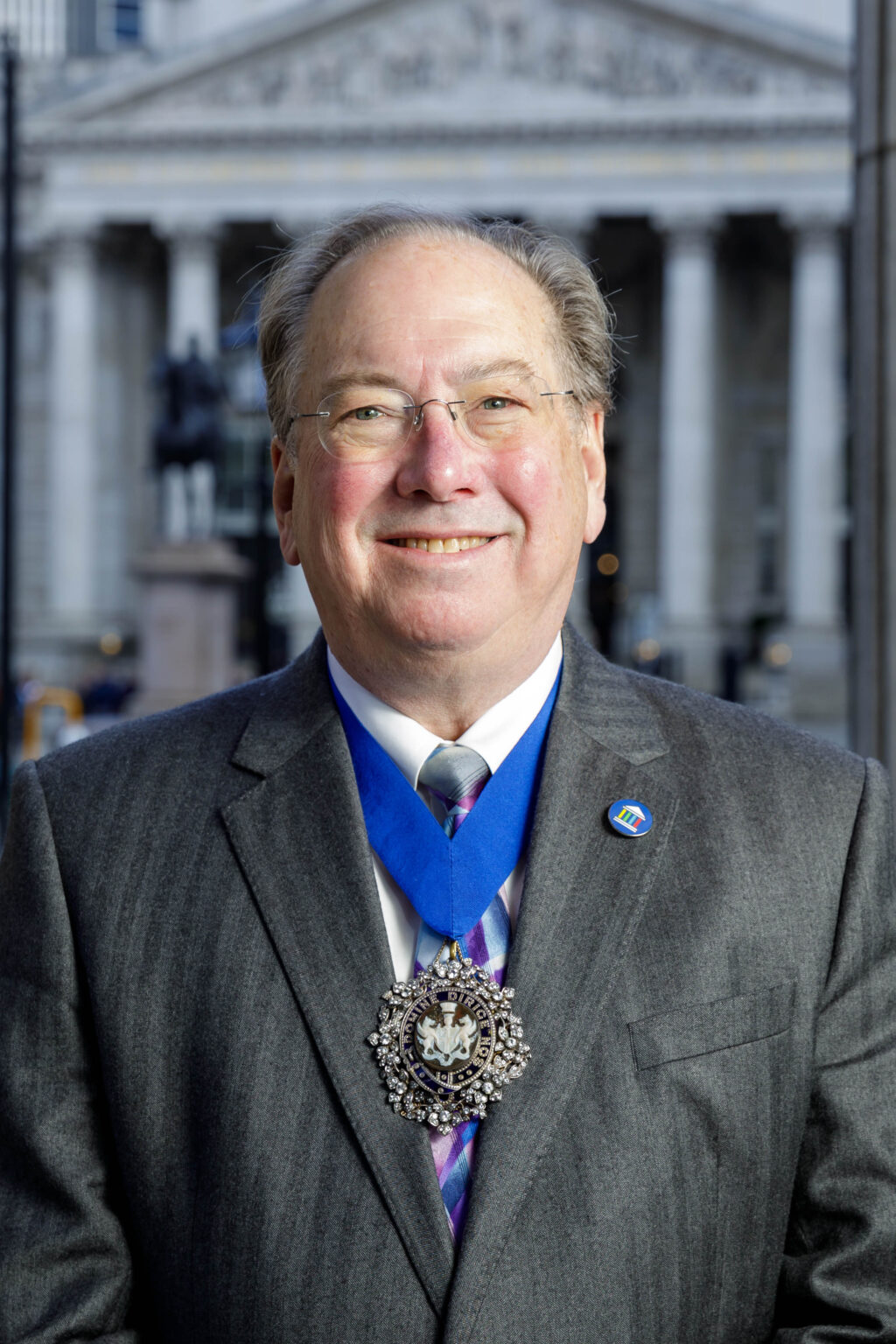Alderman Professor Michael Mainelli (Lord Mayor of the City of London 2023-24) provided the following article for UKAS’s Annual Report. The article describes the Connect To Prosper mayoralty theme and explores how all six of the Connect To Prosper initiatives promote international standards.
This year, as well as being a director of UKAS, I have the honour of serving as the 695th Lord Mayor of the City of London – the world’s oldest democratic workers’ and residents’ cooperative.
The City has 111 livery companies representing different professions, trades and crafts, some of which can trace their origins to the 8th century. As well as providing education and training, many of these companies have or had an important role in setting and enforcing the standards for their trade.
According to the World Bank, the world’s ratio of trade to GDP has increased from 25% in 1970 to 63% in 2022, with the UK having a trade to GDP ratio of 70%. A world ordered for decades by globalization and geoeconomics has quickly become a world grounded in geopolitical risk. Trade and commerce are made possible by standards that smooth the way.
The theme of my mayoralty is Connect To Prosper, which celebrates the Knowledge Miles of our Square Mile, the world’s coffee house. This is about leveraging the power of the City’s many connections to take on the big challenges facing the world today.
There are 40 learned societies, 70 higher education institutions, 130 research institutes and 24,000 businesses within two miles of the City. With these and a dynamic workforce that speaks more than 300 languages, the City is the world’s most connected commercial centre. This connectivity depends on standards.
All six of our key Connect To Prosper initiatives promote international standards.
The 695th Lord Mayor’s Ethical AI Initiative offers ethics courses for professionals working in AI – which have, so far, had more than 5,000 participants, from 500 organisations, across 50 countries. UKAS and the City recently brought together quality infrastructure organisations from more than 30 countries to conclude the Walbrook AI Accord with the TIC Council, promoting ISO 42001.
Our Space Protection Initiative is a combined technology and financial services programme to use space debris removal insurance bonds to keep space “clutter free”, meeting international space sustainability standards.
The Smart Economy Networks Initiative seeks to deploy international “open data” and identity standards in business and trade, using X-Road infrastructure.
Our Constructing Science: Offices to Labs Initiative has created and is promoting the international standard for converting commercial premises to life sciences facilities.
GALENOS is a multimillion-pound Oxford University-led programme across 70 countries that is improving standards in mental health research.
Our Green Finance Initiative advocates standards for voluntary carbon markets, nature markets, carbon offtake agreements, and sovereign sustainability-linked bonds.
In an unstable world, international standards define what great looks like, setting consistent benchmarks for businesses, consumers and nations that ensure reliability, build trust, simplify choices and make trade between countries simpler and fairer.
By distilling the wisdom of experts from around the world, standards represent the very best of human innovation and knowledge and guide economies in adopting sustainable and ethical practices that make our world a better place.
To quote Henry Ford, “if you think of standardisation as the best that you know today, but which is to be improved tomorrow – you get somewhere.”
From maritime to aviation to the food industry, standards make the world go round. In a world of misinformation and disinformation, we can see what happens when standards start to slip.
This is why it is so important for the City of London, UKAS and its quality infrastructure partners to continue maintaining and creating international standards and offering the appropriate assurance mechanisms to demonstrate that these standards are being met. In this way, we can create trust, stability and security, promote trade and investment, and bring the world closer to achieving our shared goals.
